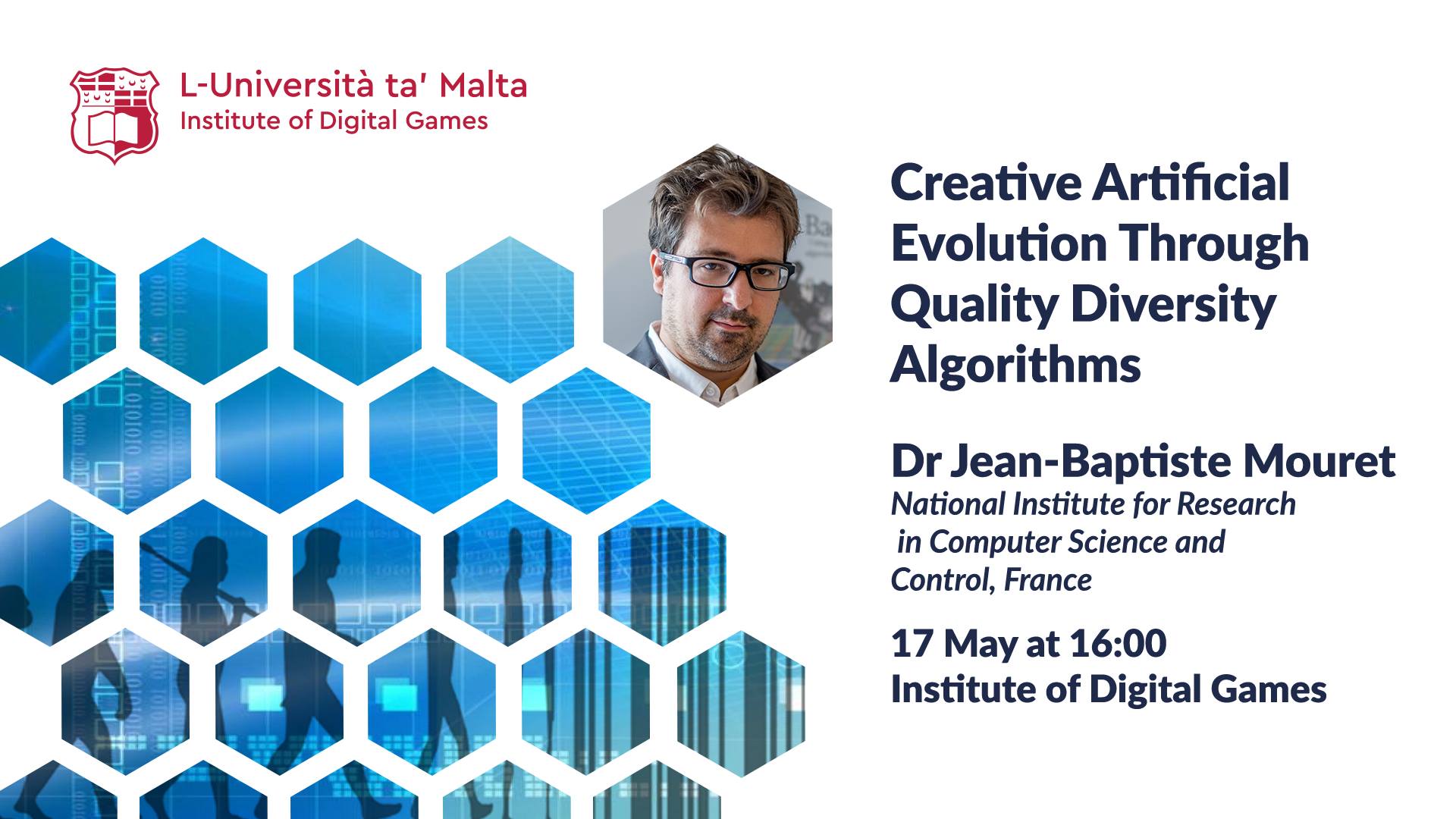
Game AI - Creative artificial evolution through quality diversity algorithms


The Institute of Digital Games is thrilled to have Dr. Jean-Baptiste Mouret of Inria, the French research institute dedicated to computer science and mathematics, speaking as part of our Game Seminar Series. Dr. Jean-Baptiste Mouret's work was some of the earliest in combining novelty with fitness in artificial intelligence algorithms.
Game AI Algorithms: Creative artificial evolution through quality diversity algorithms
Evolutionary algorithms are traditionally viewed as effective gradient-free optimization algorithms. Nevertheless, this optimization-centric view “hides” one of the most fascinating aspects of natural evolution: its creativity. In this talk, I will introduce our work on niche-based “quality diversity” algorithms, which is a new family of evolutionary algorithms designed to find a large, diverse set of high-performing solutions (instead of a single, optimal solution). I will illustrate how these algorithms are more creative designers than traditional evolutionary algorithms using our experiments in robotics (legged locomotion) and in aerodynamic design (velomobiles, airfoils).
Game AI Algorithms: What can you do with quality diversity algorithms
Dr Mouret was one of the first to investigate the idea of hybridizing novelty with fitness and this type of artificial intelligence works very well to create interesting work related to robotics (as Dr Mouret will discuss in his examples) and also games. At the moment one of the areas the Institute of Digital Games is doing research is using artificial intelligence to create content and quality diversity algorithms do help overcome the predictability inherent in algorithmically generated content.
Working on the crossroads of machine learning, robotics, and evolutionary computation: About Dr. Jean-Baptiste
Dr. Jean-Baptiste Mouret is a senior researcher ("Directeur de recherche") at Inria, the French research institute dedicated to computer science and mathematics, and he is currently the principal investigator of an ERC grant (ResiBots – Robots with animal-like resilience, 2015-2020). Overall, J.-B. Mouret conducts researches that intertwine machine learning, robotics, and evolutionary computation to make robots that can adapt as quickly and as creatively as possible. His work was recently featured on the cover of Nature ("Robots that adapt like animals", Cully et al., 2015) and it received several national and international scientific awards, including the "Prix La Recherche 2016”, the "Distinguished Young Investigator in Artificial Life 2017”, and several best paper awards in major conferences of his field. Before joining Inria, he was an assistant professor ("maître de conférences") at the Pierre and Marie Curie University (now Sorbonne Université) in Paris, France (2009-2015), .
Artificial Intelligence in Gaming Research Papers
The Institute is particularly excited to host Dr. Mouret as their PhD student Daniele Gravina has also been exploring the possibility of quality diversity in relation to games. Daniele Gravina investigates the use of surprise as a mechanism of search finding that it turns out to be highly beneficial for the efficiency and robustness of quality diversity (QD) algorithms. Other research at the IDG examines the use of neural networks, open data, preference learning, and more. Recently. we have also completed a research collaboration with Ubisoft.
Video Game AI Research
The Game Seminar Series (GSS) are special academically oriented lectures that are held approximately once a month at the Institute of Digital Games. They are open to the public, but targeted to give University of Malta students supplementary information and update them on current research in the field. Research and education doesn't happen in silos, especially not in the multi-disciplinary field of game design. The Seminars bring together academics, practitioners and enthusiasts with a common love for games of any type: digital, analog, urban, free-form, and can range from the highly technological to the extremely philosophical. There is sure to be something to interest you. If you'd like to be kept up to date on our video game AI research and other events we invite you to subscribe to our Newsletter below.

